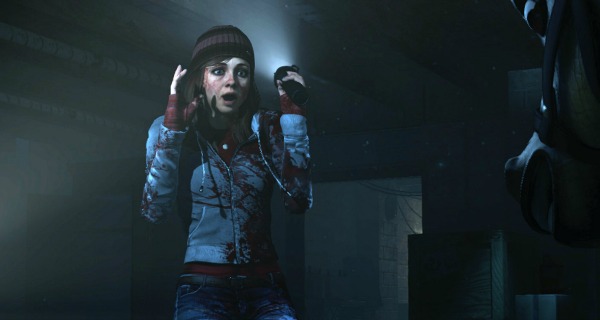3 Reasons Why Narrative-Driven Games Are The New Norm

Today in video games, there’s a new trend taking over gameplay, if you haven’t already noticed. Yes, first-person shooters like Halo and Battlefield are still popular, but they don’t seem to be nearly as popular right now as games that are totally driven by how strong the narrative is. And with that style of gameplay, there are a few reasons why this trend has suddenly kicked in to high gear.
1. Early Narrative Games Started The Trend
What seems like a long time ago, unique games like Heavy Rain and Beyond: Two Souls were released and they jump-started a revolution in the gaming industry in terms of gameplay. No longer did gameplay have to be so tightly wound around the idea that there had to be only you versus an enemy with provided weapons. In games like Beyond: Two Souls, it wasn’t about killing the enemy. You were given choices to make moral decisions, or you could easily be the bad guy and make the wrong choices every time. It was after a couple years of Beyond: Two Souls that the narrative genre really took off.
2. Players Are Obsessed With Control
Just like anyone else, I would never turn down a good dogfight in Star Wars Battlefront or a game of team deathmatch in Call Of Duty: Black Ops II, but there’s almost no control. Skulking around a map filled with enemies leaves you vulnerable—and anything could happen at any second. But in the narrative games like The Walking Dead, Until Dawn and Life Is Strange, gameplay is based on the player’s decisions. What the player decides is what dictates how the story will turn out. And players are obsessed with this style of gameplay—for good reason. There’s nothing more satisfying than knowing you have some control over the story in a video game. For example, in Life Is Strange, I made all of my decisions throughout the entire game based on saving Chloe’s life. I controlled the gameplay. The same thing in Beyond: Two Souls; I made it so that Ryan and Jodie stayed together. And in Until Dawn, I killed off the twerps that really annoyed the crap out of me. There is something disgustingly powerful about controlling the narrative in a video game, which makes the experience ten times more entertaining than usual.
3. Opportunities For Unique Gameplay and Replayability
Many games nowadays are really betting on replayability to keep their franchise alive. I’ve noticed in a lot of horror games currently in development, many are generating gameplay around the idea of random events—these are things that happen at random times during gameplay, creating a unique playthrough almost every time. Sometimes that door might slam shut behind you, and sometimes it might not. This heightens the replayability. And in terms of narrative, with different, major decisions being made, it entices players to want to go back and try it with the other decision. For example, I couldn’t save Kate in Life Is Strange. But now that I know she can be saved, I want to go back, making different decisions, and replay so that I can try to save her this time around. Putting player choice into the gameplay is a genius move in many of today’s video games which has people begging for more.
CINEMABLEND NEWSLETTER
Your Daily Blend of Entertainment News
Video games based on player choice offer a lot of benefits to both the player and developer, and I believe it makes a wholesome gaming experience all around. I just wish more games would utilize the design. I mean, when you think about it, why do you think Choose Your Own Adventure books were so popular for awhile? People love having that little bit of control, the need to replay is ever-present and the earliest games to start the trend left an unforgettable impression on the genre with others trying to match its success.

Ben Mendelsohn’s Rogue One Character Is Returning For Andor Season 2, And I’m Delighted To Learn About Who He’ll Clash With In The Star Wars Series

Sophie Turner May Be Our Next Lara Croft, Tomb Raider, But I'm Even More Pumped About Who She's Teaming Up With

Max Thieriot Opens Up About Bode's Relationship With Jared Padalecki's New Fire Country Character, And I'm Very Intrigued By His ‘Conflict’ Comments
Most Popular




